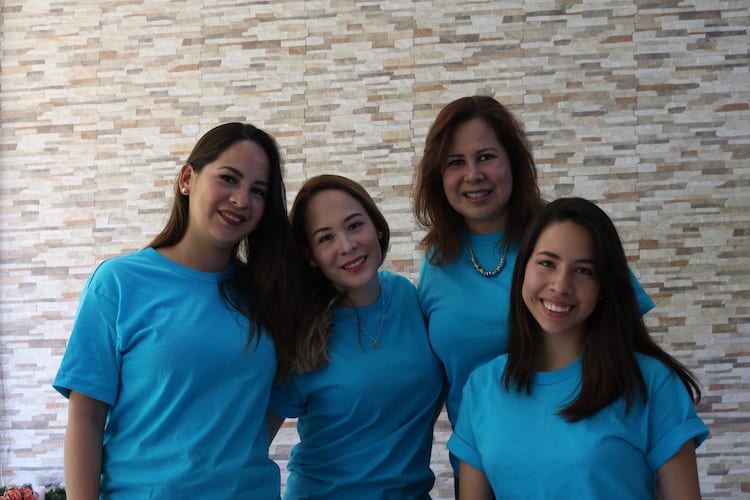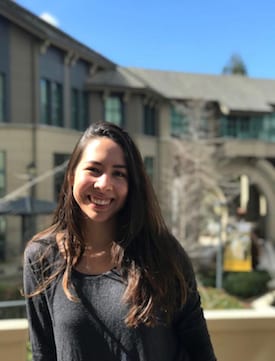
In honor of Latinx Heritage Month, we’re featuring interviews and profiles with members of the Latin American community. For our fifth interview, we caught up with Adriana Vanegas.
When Adriana Vanegas, BS 20, arrived in California from San Salvador, the capital of El Salvador, in 2006, she spoke no English and struggled to stay motivated in school.
“Twelve years ago, I never would have imagined that I would be at Berkeley Haas,” said Vanegas.
But over the years, Vanegas said she was inspired by her mother, who runs her own dental practice, to work hard and study, which led her to Irvine Valley College. There, she was involved in student government and served as a student ambassador, helping to raise money for scholarships and boost enrollment at the school. From Irvine Valley College, she achieved a goal she never thought possible: transferring into Berkeley Haas as a junior this year, receiving a Chancellor’s Scholarship, a Leadership Scholarship and the Kruttschnitt Aspire Scholarship.

We asked Vanegas a few questions about life in San Salvador and her culture:
Tell me about your family.
I grew up in a very big family. At least once every week, I would see all of my grandparents, aunts, uncles, and cousins gathered in one place. Not having my family around all the time was one the most difficult things I had to adjust to when I came to the United States. Over time, I realized that regardless of where I am in the world, I will always have my family’s support.
Why did you move to the U.S.?
In El Salvador, my mom had a dental practice but not many people were able to afford dental care so it became difficult for her to financially support the family. My mom made the brave decision to move to the United States to attain the American Dream. While she established herself in the US, I stayed behind with my grandparents in El Salvador and I eventually immigrated to California in 2006. My mom now has her own dental practice in California.
How did you become a good student?
Becoming a good student was a bit of a process for me but I remember my “turning point” very clearly. It was the last day of elementary school and I was walking home, nervous to open my report card. As soon as I opened it, I realized that I got all Cs—barely passing the grade. At that moment, I felt an overwhelming feeling of guilt because I knew I was not worthy of all of the sacrifices that my mom made for me. While my mom worked over 10 hours per day to build a better future for our family, I spent my days doing everything else besides school work.
From that point, I set myself a goal to make my mom proud and do well in school. The biggest challenge was not even knowing what studying meant. As a young middle-schooler, I thought rereading a study guide was boring—so as a music-loving Latina, I turned to music. Every Thursday night throughout middle school, I was in my room singing about mitochondria and cell walls to prepare for my biology test. Slowly, but surely, my grades improved and I accomplished my goal.
What do you love the most about being Salvadoran?
I am part of a community of fighters. As I was growing up, my mom showed me what it really meant to be a fighter, a go-getter, and a hard worker. Everything I have today is because of my mom’s hard work. She is the reason why I was able to learn English, why I was able to get an education in the United States, why I was able to transfer out of community college, and why I will be able to graduate from UC Berkeley. Her incredible example inspires me to work even harder every single day and to be a fighter—just like her.
How did your culture influence your future goals?
Being Latina has always empowered me to work harder because I want to set an example for other Latinos to dream big and further their education. There are so many children in El Salvador who are unable to continue their education due to economic reasons, which traps them in the vicious cycle of poverty. After graduation, my goal is to go back to El Salvador and help underprivileged children by empowering them through education.